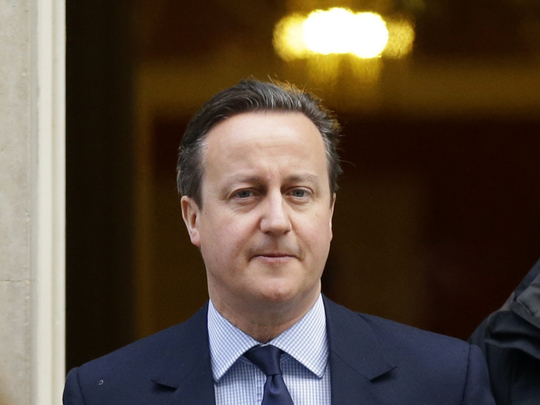
The 7/7 attacks on London in 2005, which killed 52 people, were carried out by a group of extremists who had turned their rented house in Leeds into a bomb-making factory. Fast-forward 10 years and that must have been the image that popped into the head of a teacher of a 10-year-old boy in Lancashire, who wrote that he lived in a ‘terrorist house’ when he misspelled ‘terraced’ in a primary school lesson.
You’d have thought it would be easy to figure out that the youngster from Accrington wasn’t in fact living amongst extremists and that his teacher could have corrected him and laughed the whole thing off. But Britain’s counter-terrorism legislation is now such that the boy’s teacher is compelled to raise any suspicions he or she had over the incident with the authorities. The result being that police visited the youngster’s home to question him and examine his family’s laptop — quite an ordeal for what was, after all, only a spelling mistake.
The 2015 Counter-Terrorism and Security Act, which came into effect in the middle of last year, states that schools must ‘in the exercise of its functions, have due regard to the need to prevent people from being drawn into terrorism’. Pretty obvious stuff, but putting those words into law piles extra pressure on already over-stretched teachers and gives them reason to fear the consequences if they were to miss something. So now they have been forced into a corner, reduced to singling out Muslim children in a most-likely futile effort to prevent the next terrorist atrocity.
The number of people aged under 18 years referred to Channel — the government’s deradicalisation programme — rose almost 300 per cent to 1,355 for the 12 months ending in October 2015. While it is clear that even if just one attack is stopped by this tightening of the law then it can be considered worthwhile, one must also question whether referring a flood of children who would not previously have been considered a risk may reduce the scheme’s chances of intervening if one troubled youth does become radicalised.
Crucially, it also adds to Britain’s growing penchant for singling out minorities — frequently immigrants or refugees, and more often than not Muslims.
The incident involving the ‘terrorist house’ hit the headlines in Britain just 24 hours after Prime Minister David Cameron was criticised for saying Muslim women who fail to learn English after arriving in the country were more susceptible to extremist propaganda. This focus on one minority group, when there are others just as likely to cut themselves off in their own communities and barely speak any English, can only help fuel a general perception in United Kingdom society that Muslims are the problem.
Discriminatory attacks are becoming every-day occurrences on the street, on public transport and on social media. You only have to follow the Twitter feed of Tell Mama — an organisation that monitors anti-Muslim attacks of all types — to get a depressing daily reminder of the number of people targeted all over the UK. While the government is making distinctions between ethnic groups, the media certainly has no problem stoking anti-Muslim sentiments either. On one day earlier this month, at least three national newspapers carried front-page stories, describing how thousands of pupils faced earlier exams this summer because administrators were kowtowing to requests to avoid a clash with Ramadan. The subsequent clarification from the Joint Council for Qualifications that this wasn’t the case at all was barely afforded a mention.
Other developments this week suggest the UK could face more issues with immigration and extremism in the near future. On Wednesday, Defence Minister Michael Fallon attended a meeting of coalition countries involved in the bombing of Daesh (the self-proclaimed Islamic State of Iraq and the Levant) targets in Syria, where he called for a “tightening of the noose” around the group’s heartland, which could lead to more refugees fleeing to Europe and also make Britain more of a target for retribution. At the same time, the European Union was drawing up plans to share the ‘burden’ of refugees more equally among member states — which will mean more for the UK and will be music to the ears of anti-immigration groups with the referendum on the country’s EU membership now seemingly just months away.
So is the only conclusion we can draw from all this that British society should be written off as intolerant? Is it a place where Muslims should expect to be singled out for abuse, no matter their innocence?
Tell Mama founder Fiyaz Mughal told Gulf News last month that he feared the UK was becoming less tolerant, but there were also many positive stories — they may not get the same coverage nationally, but they are worth celebrating as signs that all is not lost. For example, during the floods that devastated northern England over Christmas, mosques and Islamic groups were generous in the time and money they donated to help victims through the disaster, while only this week, Bristol Jamia Mosque received flowers and messages of support from the wider community after it was targeted by an anti-Muslim gang.
So, carrying on the theme of spelling mistakes started by a 10-year-old from Accrington, let us hope that in future, the policies, media outlets and organisations that seek to isolate and divide are remembered as the ‘errorists’ of our time.
Martin Downer is a freelance journalist based in the UK.










